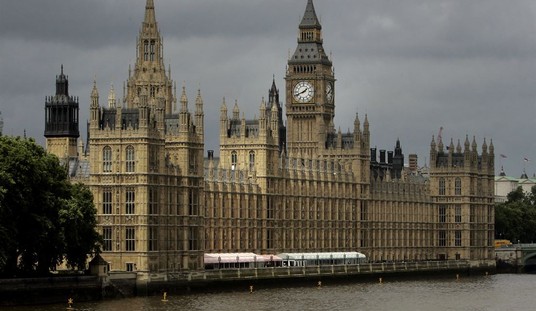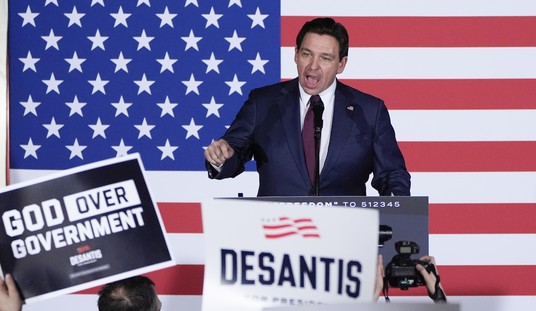The scale of the Democratic Party’s losses over the course of the Barack Obama era is becoming clear, and they are vast. On Saturday, Politico reported that Democrats are coming to the grim realization that much of the party’s talent pool was crushed on Tuesday.
In Maryland, the state’s lieutenant governor, an Iraq War veteran and Harvard alumnus, failed to win the state’s governor’s mansion despite Barack Obama personally campaigning for him. In Georgia and Kentucky, New Southern Democrats Michelle Nunn and Alison Lundergan Grimes were defeated by a political newcomer and Republican incumbent respectively. In Texas, Wendy Davis, hailed in the press as the women who might finally turn Texas blue, had precisely the opposite effect on her state. The state Senate seat she once held will be occupied in January by a pro-life, tea party-friendly Republican woman.
“Any of them could have landed on a vice presidential short list in 2016,” Politico lamented. “Instead, all of them lost.”
Joining them were numerous down-ballot Democrats widely viewed as future contenders for high office: attorney general candidates in Nevada and Arizona who looked like future governors; aspiring state treasurers in Ohio and Colorado who could have gone on to bigger things; prized secretary of state candidates in Iowa and Kansas as well as countless congressional hopefuls around the country.
In two consecutive midterms, Republicans have decimated the Democratic Party’s bench of talent, not just on the federal or statewide level but farther down the ballot as well. The GOP now controls 69 of the nation’s 99 legislative chambers, a dramatic reversal, according to Washington Examiner columnist David Freddoso, from 2008 when Barack Obama’s party controlled 62 legislative chambers. The GOP now has the total command of state government – both chambers of the legislature and the governor’s mansions – in 23 states, while Democrats command the levers of government in just seven states. In addition to the Republican Party’s 31 governorships, the GOP enjoys the allegiance of 32 lieutenant governors offices and 29 crucial secretaries of state.
The Democratic Party’s farm team outside of the coasts and some enclaves in the Deep South and the Upper Midwest has been all but wiped out. The party, as The Washington Post’s Dan Balz observed in a must-read column, is at risk of being seen as a rapidly aging one.
“Think of it this way,” he wrote. “If Clinton were to win the presidency and serve two terms, the next opportunity for a new generation of Democrats to compete nationally would not come until 2024.”
“The Democrats could go 16 years between competitive presidential nomination contests, wiping out opportunities for today’s younger generation to define or redefine the party apart from either the Obama or Clinton eras,” Balz continued.
According to national exit polling, Republicans improved with the voters aged 18-29 who turned out by 2 points over the party’s 2010 standing. The GOP only lost young voters to Democrats by an atypically close single-digit margin. Moreover, the GOP continues to elevate a younger generation of leaders to high office, including the youngest woman to serve in the House in history, 30-year-old Representative-elect Elise Stefanik (R-NY) who had the added privilege of turning her Empire State district from blue to red. She will replace Rep. Aaron Schock (R-IL) who, at 33-years-old, will soon only be the second youngest House member.
The Democratic officeholders who survived the routings of 2010 and 2014 are primarily entrenched incumbents and are invariably of an older set. The Democratic Party is rapidly becoming a political organization that, as liberals once said of the GOP, does not look like the constituents it seeks to represent.
Balz further notes that the last competitive Democratic presidential primary, an energizing spectacle which Democrats are unlikely to have in 2016, featured a number of names that have long ago shuffled off the national stage.
The last competitive nomination campaign, in 2008, included — in addition to Obama and Clinton — an experienced field: then-senators Joe Biden, Christopher Dodd and John Edwards, and then-governor Bill Richardson. Clinton has been on the national stage for two decades. Biden, who might run if Clinton does not, was elected to the Senate four decades ago. Dodd and Richardson are out of office. Edwards is in disgrace. With the obvious exceptions, that field has disappeared.
And who might challenge Clinton in 2016? Maryland’s Gov. Martin O’Malley has been repudiated by his deep blue state’s voters. California Gov. Jerry Brown, 76, won his first statewide office during the Nixon administration. Andrew Cuomo, who Balz dismisses as unable to remove himself from Clinton’s shadow, is despised by his party’s left-wing. Sen. Bernie Sanders (I-VT) is a septuagenarian socialist.
By contrast, the GOP has a slate of young, energetic federal and statewide office holders and a number of two-term governors now who have consistently demonstrated their ability to withstand Democratic attacks. One which should send shivers down the left’s collective spines is Ohio’s John Kasich. The Buckeye State’s governor won his reelection by the second-largest margin in its history, but his state’s voters have also seen fit to give the GOP near total command of the state under Kasich’s watch.
Ohio is an interesting case study of the fortunes of the two parties. It has been ground zero in presidential campaigns for years. Obama won it twice — but at the state level, Republicans are firmly in control. GOP candidates have won all the statewide elected offices there in five of the past six elections.
The party maintains a strong bench of talent on the coasts and in America’s urban centers, but Democratic strategists are right to fret that those future recruits may not have the crossover appeal in purple states that center-left candidates otherwise would.
When Barack Obama took office, he was hailed as a liberal savior. His presidency, it was believed, would usher in a new era of progressive dominance not seen since Roosevelt. Instead, Republicans have been restored to a position of power across the country they had not known since Al Smith lost 40 states to Herbert Hoover. Far from revitalizing it, Obama has erased generations of the Democratic Party’s progress.
An earlier version of this article indicated Nunn lost to an incumbent. Senator-elect David Perdue ran for an open seat in Georgia. Stefanik was also identified in an earlier version of this article as the youngest person to be elected to the House.








Join the conversation as a VIP Member